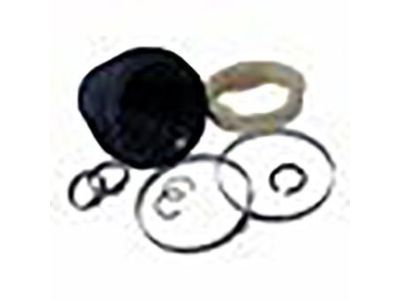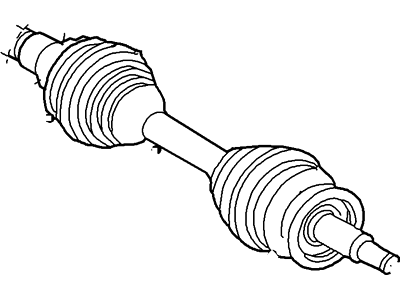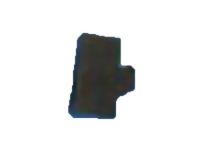For 4WD models equipped with Constant Velocity (CV) joint type driveaxle assemblies, the inboard tripod design CV joint and CV Boot are serviceable units, while the outer CV joint must be replaced as an assembly. To begin disassembly, remove the driveaxle from the vehicle and mount it in a vise, ensuring the jaws are lined with wood or rags to prevent damage. Cut and discard the boot clamps from the inner boot, then move the boot toward the center of the shaft. Bend the retaining tabs slightly to facilitate tripod removal, then detach the tripod assembly from the outer race. Move the inner stop ring down the shaft about 1/2-inch, then slide the tripod down until the circlip is visible, remove the circlip, and pull the tripod assembly off the axleshaft. Inspect the tripod rollers, roller bearings, and races for damage, as worn tripods cannot be rebuilt. Remove the inner stop ring and the old CV Boot, then slide a new clamp and inner CV joint boot onto the axleshaft. Install a new inner stop ring, followed by the tripod assembly with the chamfered side inward. Push the tripod assembly down far enough to install the new circlip, then secure the tripod assembly with the inner stop ring. Fill the outer race with CV joint grease, applying some inside the CV Boot, and push the tripod assembly into the outer race, bending the retaining tabs back to their original shape. Wipe excess grease from the axle CV Boot groove, seat the CV Boot, and install the clamp. Equalize the pressure in the CV Boot by inserting a dull screwdriver between the CV Boot and outer race, then install the CV Boot clamp using special pliers. Install a new clip on the stub axle and the driveaxle. For the outer CV joint, which is non-serviceable, if damage or excessive wear occurs, the driveaxle and outer CV joint assembly must be replaced. If the CV joint is deemed serviceable after inspection, remove the inner CV joint and CV Boot, cut the CV Boot clamps, and detach the CV Boot from the CV joint. Check the grease for contamination; if gritty, the CV joint must be replaced. If not contaminated, remove all grease using solvent and a soft bristle brush, then dry the CV joint thoroughly. Inspect the cage, balls, and races for wear or damage, replacing the driveaxle shaft and outer joint assembly if necessary. Install the new outer CV Boot and clamps, packing the CV joint with approximately 6.0 ounces of grease, then position the outer CV Boot on the CV joint and secure it with clamps. Finally, assemble the inner CV joint and CV Boot and install the driveaxle.
Posted by FordPartsGiant Specialist 







